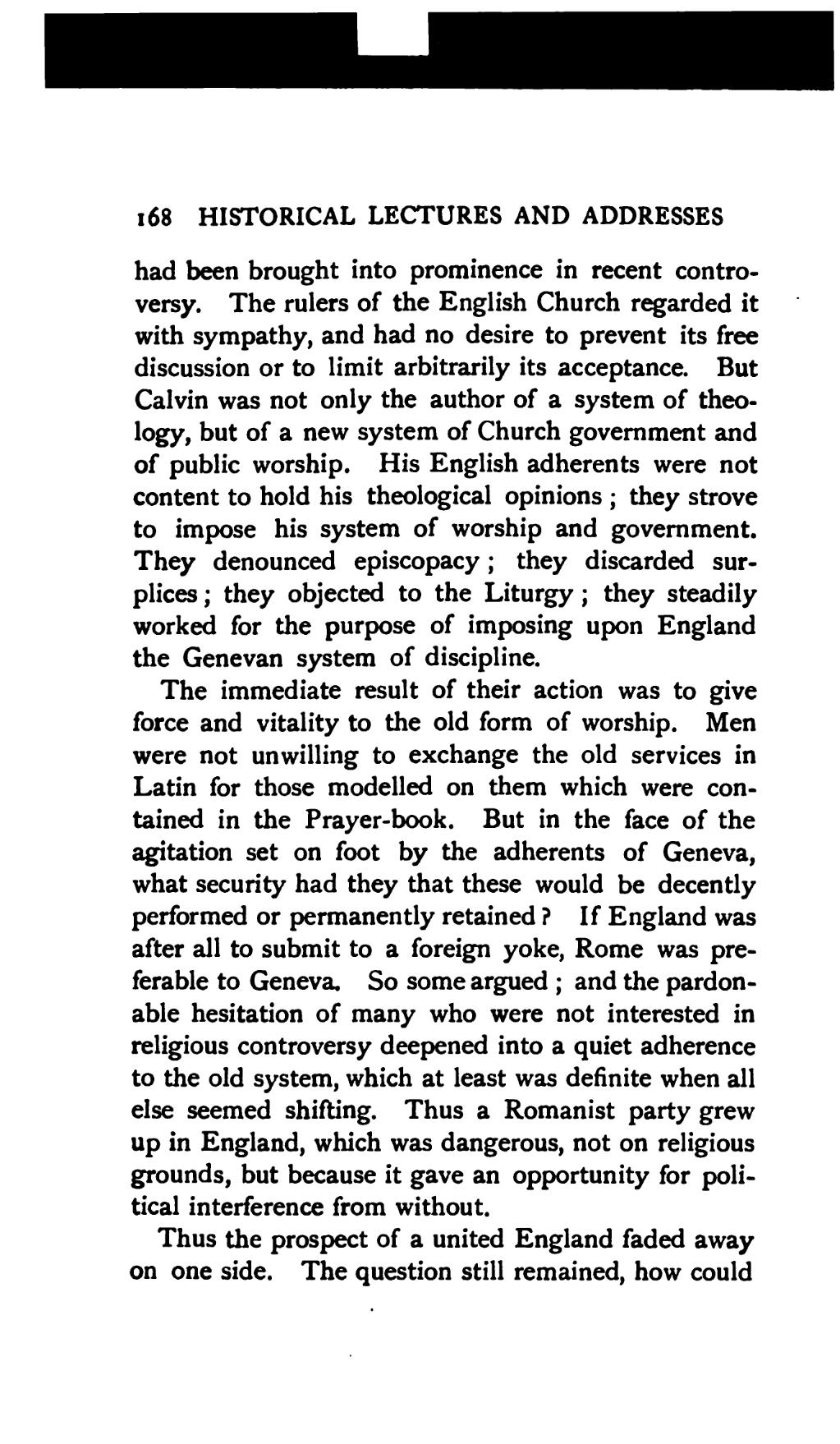had been brought into prominence in recent controversy. The rulers of the English Church regarded it with sympathy, and had no desire to prevent its free discussion or to limit arbitrarily its acceptance. But Calvin was not only the author of a system of theology, but of a new system of Church government and of public worship. His English adherents were not content to hold his theological opinions; they strove to impose his system of worship and government. They denounced episcopacy; they discarded surplices; they objected to the Liturgy; they steadily worked for the purpose of imposing upon England the Genevan system of discipline.
The immediate result of their action was to give force and vitality to the old form of worship. Men were not unwilling to exchange the old services in Latin for those modelled on them which were contained in the Prayer-book. But in the face of the agitation set on foot by the adherents of Geneva, what security had they that these would be decently performed or permanently retained? If England was after all to submit to a foreign yoke, Rome was preferable to Geneva. So some argued; and the pardonable hesitation of many who were not interested in religious controversy deepened into a quiet adherence to the old system, which at least was definite when all else seemed shifting. Thus a Romanist party grew up in England, which was dangerous, not on religious grounds, but because it gave an opportunity for political interference from without.
Thus the prospect of a united England faded away on one side. The question still remained, how could
